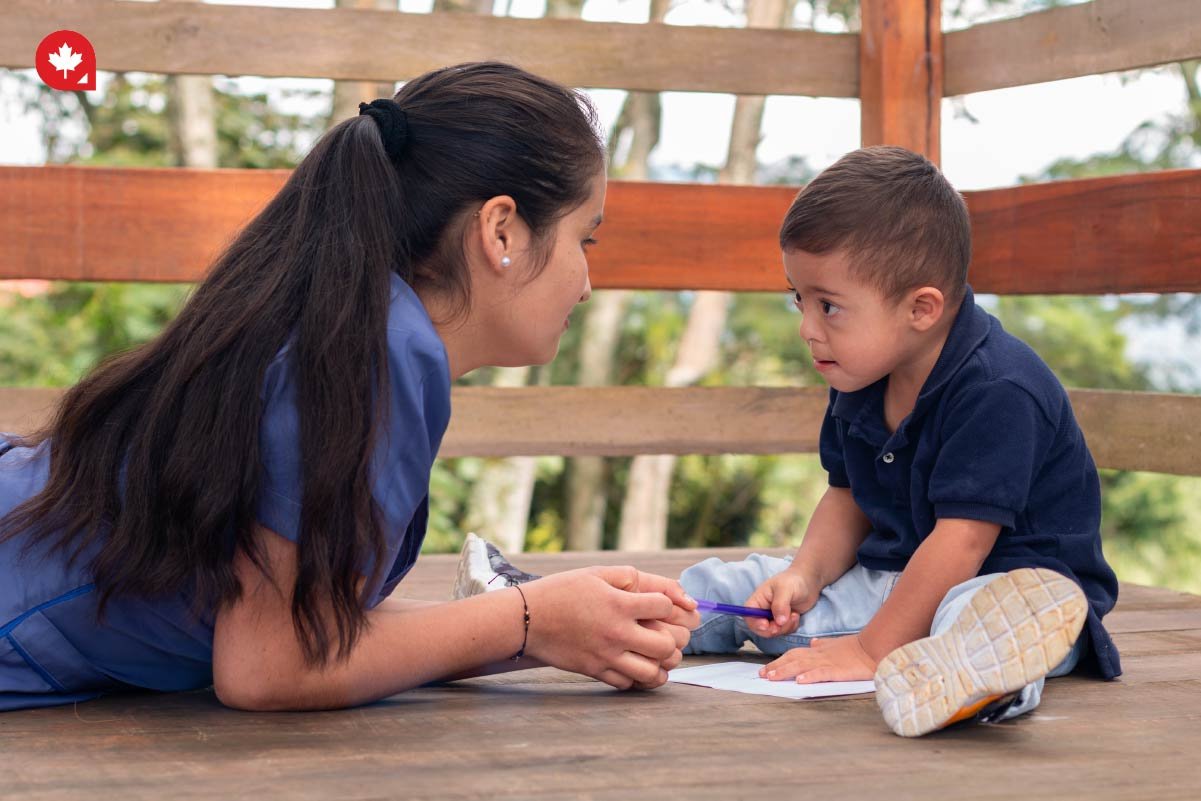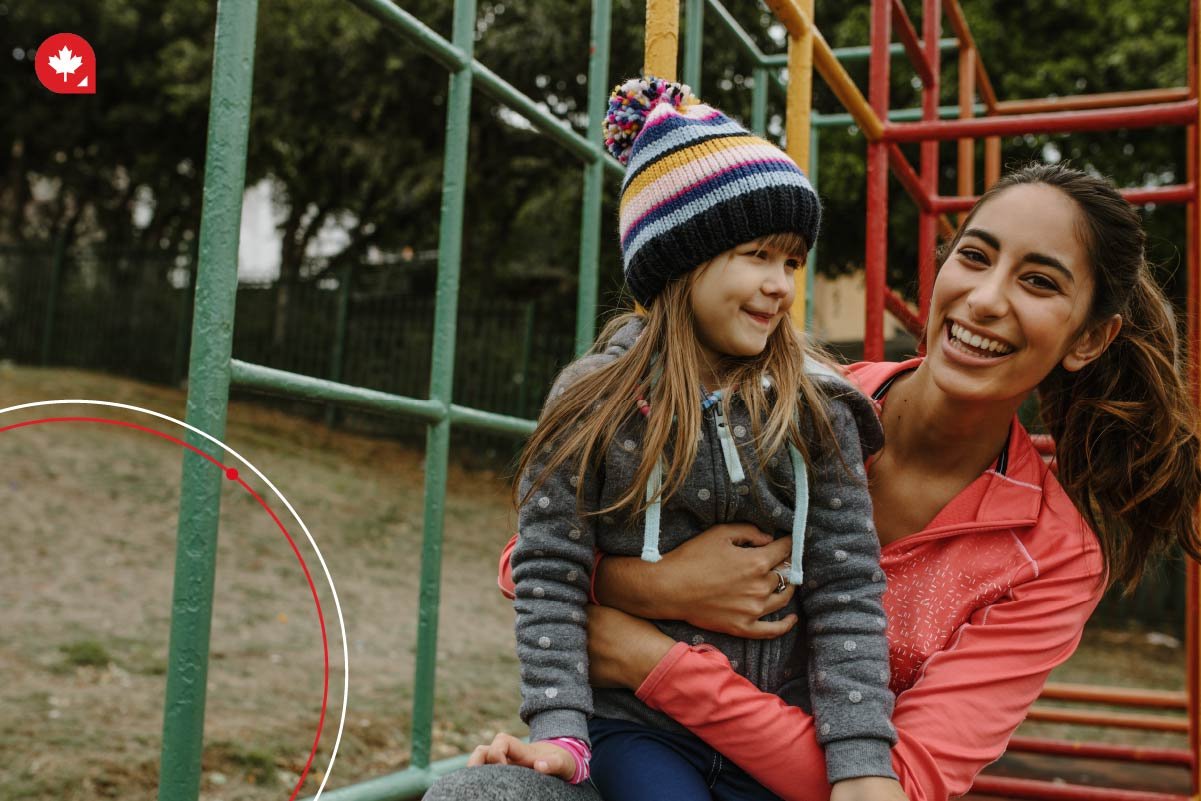Au Pairing is an occupation reserved almost exclusively for women. Parents simply trust the female gender much more with their children's lives, and understandably so. The first benefit that comes to mind is an immediate reduction in competition; from the number of people in the job pool to the number of spots available in the special Canadian permanent residency program, the Home Child Care Provider Pilot. The rising cost of daycare in Canada has seen a significant increase in the number of parents who are instead opting for an Au Pair to take care of their child's needs as it often costs the same if not less than daycare.
Au Pairs in Canada are in high demand due to the country's prioritization and high investment in education. Working as an Au Pair in Canada can be a rewarding and enriching experience, allowing you to develop new skills, build lasting relationships, and explore a new country. By following these steps below, you can position yourself as a competitive candidate and increase your chances of moving to Canada as an Au Pair.
5 Steps To Move to Canada as an Au Pair

Working as an Au Pair in Canada offers you the chance to immerse
yourself in a new culture while contributing to a host family's daily life. To make this journey smoother, here's a
simple five-step guide to help you navigate the requirements and ensure a successful Au Pair experience in the
Great White North.
1. Check the Requirements
Before you dive into the Au Pair experience, ensure you meet the basic requirements. To work as an Au Pair in Canada, you need to be at least 18 years old and possess a valid passport from your home country. This essential step lays the foundation for your Canadian adventure.
2. Find a Host Family
The second step involves finding a suitable host family. Au Pairs and potential host families connect through online job matching sites. These platforms facilitate the initial contact, allowing both parties to engage in a series of email and Skype interviews. This process helps build a rapport and ensures a mutual agreement is reached before making any commitments.
3. Sign an Employment Contract
For the third step, while Canada doesn't have an official Au Pair contract, using the widely accepted European template is common practice. Signing a written agreement is crucial to avoid misunderstandings. The contract should outline specific details such as Au Pair duties, working hours, schedule, vacation time, and the agreed-upon pocket money. Clarity in expectations contributes to a positive Au Pair experience.
4. Get Health Insurance
Moving on to the fourth step, to secure a visa for your Canadian stay, obtaining health insurance is mandatory for Au Pairs. This policy must cover the entire duration of your stay and include medical care costs. Ensuring you have adequate health coverage not only meets visa requirements but also guarantees your well-being during your time in Canada.
5. Participate in a Language Course
Lastly, for the fifth step, to enhance your cultural immersion and communication skills, participating in an English or French language course is highly recommended. While staying in Canada, allocate time for language learning. Host families should assist Au Pairs in finding suitable language schools, although Au Pairs typically cover the cost of their courses. Embracing this opportunity contributes to a more fulfilling and well-rounded Au Pair experience.
By following these five steps, you can embark on your journey as an Au Pair in Canada with confidence, ensuring a positive and rewarding adventure for both you and your host family.
Au Pair Visa Routes in Canada
1. Working Holiday Visa:
Requirements
- Eligibility: Young individuals from participating countries, typically between 18 and 35 years old, may apply for a Working Holiday Visa under the International Experience Canada (IEC) program.
- Random Selection: Applicants are often selected through a random draw, and if successful, they receive an invitation to apply for the visa.
2. Temporary Foreign Worker Program (TFWP):
Requirements
- Job Offer: Secure a job offer, possibly as an au pair, and obtain the necessary work permits
- LMIA or Relevant Program Approval: Employers may need to obtain a positive LMIA for TFWP or adhere to specific program requirements for IMP.
3. Study and Work Permit Combination
Requirements:
- Enroll in a Designated Learning Institution (DLI): Apply and get accepted into a Canadian institution for a program of study.
- Obtain a study permit: This may also allow for part-time work during the academic term and full-time work during scheduled breaks.
4. International Mobility Program (IMP) – Young Professionals Category
Requirements:
- Eligibility: Individuals aged 18 to 35 may be eligible for the International Experience Canada (IEC) program under the Young Professionals category.
- Job Offer: Secure a job offer related to their field of expertise, which may include caregiving.
- Work Permit: Once accepted into the program, applicants can apply for a work permit.
Immigration and Permanent Residence
After completing one of the temporary programs mentioned above, individuals may explore pathways to immigrate and stay in Canada permanently. For au pairs specifically, the Express Entry system may be an option if they meet the eligibility criteria, including work experience and language proficiency. The Canadian Experience Class (CEC) stream within Express Entry is designed for individuals with Canadian work experience.
Additionally, individuals may consider the Provincial Nominee Program (PNP) if they have a job offer from a specific province or territory. Some provinces may have caregiver streams that align with the experience gained as an au pair.
What Does an Au Pair in Canada Do?

An Au Pair in Canada typically performs the following duties
- Childcare: Provide daily childcare to the families they work for, including feeding, bathing, and playing with the children
- Household Assistance: Help with light household chores, such as cleaning, laundry, and meal preparation
- Language Learning: Participate in an English or French course while in Canada to improve language skills
- Travel: Au Pairs may have the opportunity to travel with their host family, both inside and outside of Canada, during their stay
- Flexible Work Schedule: Au Pairs often have a flexible work schedule, which allows them to maintain a decent disposable income for fun and/or saving
In addition to these responsibilities, Au Pairs in Canada are entitled to certain benefits, such as:
- Housing: A private single room.
- Meals: Breakfast, lunch, and dinner provided by the family.
- Health Insurance: A health insurance policy for the whole duration of the Au Pair stay, covering medical care.
Au Pairs in Canada are well-compensated through their salary and benefits, with the minimum salary being the local provincial minimum wage minus the costs of room and board.
What is the Salary Range for Au Pairs in Canada?
The salary range for Au Pairs in Canada is at least the local provincial minimum wage minus the costs for room and board. The minimum wage varies by province, ranging from 13 CAD in Saskatchewan to 16 CAD in Nunavut. In addition to the salary, Au Pairs in Canada are entitled to benefits such as housing, meals, and health insurance. The average salary for an Au Pair in Canada is 34,611 CAD per year or 17.75 per hour, with entry-level positions starting at 27,300 CAD per year.
What is The Application Process for Au Pairs in Canada?
To become an au pair in Canada, the following steps are typically involved:
- Meet the Requirements
- Apply for the Working Holiday Visa
- Find a Host Family
- Sign an Employment Contract
- Apply for a Social Insurance Number (SIN)
By following these steps, individuals can navigate the application process to work as an au pair in Canada.
What Are the Requirements to Become an Au Pair in Canada?
To become an Au Pair in Canada, the following requirements must be met:
- Age and Citizenship: To work as an Au Pair in Canada, you must be at least 18 years old and have a valid passport from your home country.
- Marital Status: You must be unmarried and have no children.
- Language Skills: You should have a basic knowledge of English or French.
- Financial Requirements: You should have around 2,500 CAD and a return plane ticket.
In addition to these requirements, it is important to note that there is no official Au Pair program or visa for Canada. However, individuals from certain countries may apply for a work permit instead, which allows them to work in Canada.
What Are the Benefits of Being an Au Pair in Canada?

Being an Au Pair in Canada offers several benefits, including:
Paid Vacation
Au Pairs in Canada are entitled to two weeks of paid vacation for a 12-month contract.
Travel Opportunities
After completing their program, Au Pairs can take advantage of a 30-day traveling opportunity.
Flexible Work Schedule
Au Pairs in Canada often have a flexible work schedule, which allows them to maintain a decent disposable income for fun and/or saving.
Housing and Meals
Host families provide Au Pairs with a private single room and meals, including breakfast, lunch, and dinner.
Health Insurance
Au Pairs in Canada are required to have health insurance for the duration of their stay.
Salary Incentives
Host families may offer salary incentives and benefits to Au Pairs, which can boost their overall gross and net salary.
Travel with Host Family
It is common for Au Pairs to have the opportunity to travel with their host family, both inside and outside of Canada.
These benefits contribute to the overall well-being and satisfaction of Au Pairs during their stay in Canada.
FAQs
How Long Does It Take to Process an Au Pair Application in Canada
The application process for an Au Pair in Canada can take anywhere from 1-4 weeks, depending on how quickly the host family works to finish the necessary forms. The work permit application with all the final documents is processed on a "first-in, first-out" basis within 8 weeks. After the application has been accepted, the Au Pair will receive a Port of Entry (POE) Letter of Introduction, which they must bring along to Canada and present at the border.
How We Can Help You Immigrate to Canada as an Au Pair?
Once you have a job offer, the long and complicated process of applying for your work permit and permanent residency begins. There are numerous forms to complete, deadlines to meet, and if there is an error in any of your documentation, you risk it being sent back and having to start over. That’s where we come in.
All candidates will first be evaluated to see whether or not they can apply for one of 100 immigration programs, visas, and streams. Once we know which options you can apply for, you can then confidently select your preferred immigration program and your designated consultant will ensure that all your documents are completed accurately and submitted on time.
When you apply for Canadian permanent residency with our services you essentially remove all the stress and complications from the immigration process, and with our high success rate, you can rest assured that your application is in good hands as you gain express entry into Canada.
How Much Experience Do I Need to Be an Au Pair in Canada?
To become an au pair in Canada, you must be between the ages of 18 and 30 (or 35 for some countries), unmarried, have no children, and have a basic knowledge of English or French. There is no formal requirement for prior experience as an au pair in Canada, but having experience in childcare or related fields can be beneficial for securing a position.
What is the Difference Between Pocket Money and Room and Board for Au Pairs in Canada
Pocket money and room and board are two different concepts for Au Pairs in Canada. Pocket money is the amount paid to the Au Pair for their work, which is at least the local provincial minimum wage minus the costs for room and board. The minimum wage varies by province, ranging from 13 CAD in Saskatchewan to 16 CAD in Nunavut. On the other hand, room and board refer to the accommodation and meals provided by the host family to the Au Pair. The host family provides the Au Pair with a private room and meals, and the costs for these are deducted from the Au Pair's pocket money. For example, in Ontario, the weekly costs for room and board are calculated at 85.25 CAD, which is deducted from the Au Pair's pocket money.




